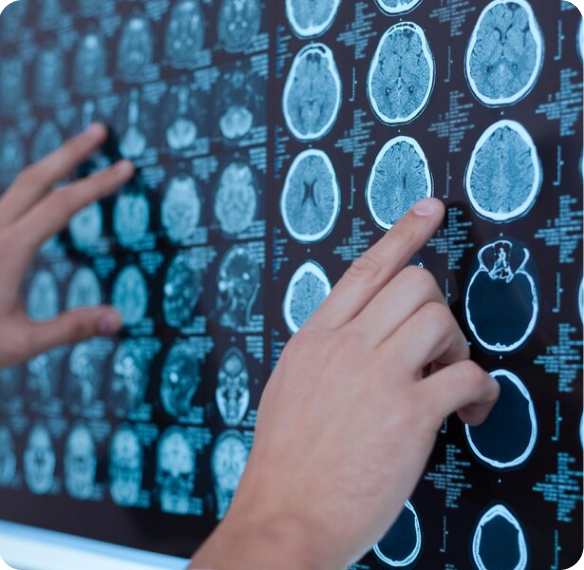
Neurosurgery Surgery
Neurosurgery is a medical specialty focused on the diagnosis, treatment, and surgical management of conditions affecting the brain, spine, and nervous system. Neurosurgeons are trained to perform complex surgical procedures on the central and peripheral nervous systems to address a variety of disorders, ranging from traumatic injuries to neurological diseases and congenital conditions.

Neurosurgery Specialties
General Neurosurgery
Objective: To diagnose and treat a wide range of conditions affecting the brain, spine, and peripheral nervous system.
Examples: Management of brain tumors, spinal disc herniations, and traumatic brain injuries (TBI).
Spinal Neurosurgery
Objective: To treat conditions affecting the spine and spinal cord, including trauma, degeneration, and deformities.
Examples: Spinal fusion for scoliosis, discectomy for herniated discs, and treatment of spinal cord injuries.
Brain Tumor Surgery
Objective: To surgically remove or biopsy tumors from the brain while minimizing damage to surrounding healthy tissue.
Examples: Removal of gliomas, meningiomas, and metastatic brain tumors. Use of advanced techniques like stereotactic surgery and intraoperative imaging.
Trauma and Critical Care Neurosurgery
Objective: To treat acute neurological injuries caused by trauma, as well as provide critical care for patients with severe brain or spinal injuries.
Examples: Surgical management of traumatic brain injury (TBI), subdural hematomas, and spinal fractures. Intensive care for neurotrauma patients.
Pediatric Neurosurgery
Objective: To address neurological conditions in children, including congenital defects and pediatric brain or spinal conditions.
Examples: Treatment of hydrocephalus, spina bifida, and pediatric brain tumors. Neurosurgical management of congenital anomalies.
Functional Neurosurgery
Objective: To treat movement disorders, chronic pain, and other functional neurological conditions using surgical interventions.
Examples: Deep brain stimulation (DBS) for Parkinson’s disease, epilepsy surgery, and spinal cord stimulation for chronic pain.
Vascular Neurosurgery
Objective: To manage conditions affecting the blood vessels of the brain and spine, including aneurysms, arteriovenous malformations (AVMs), and stroke.
Examples: Surgery for cerebral aneurysms, carotid artery surgery, and endovascular techniques for treating vascular malformations.
Minimally Invasive Neurosurgery
Objective: To perform neurological surgeries using advanced, minimally invasive techniques to reduce recovery time and improve outcomes.
Examples: Endoscopic spinal surgery, keyhole brain surgery, and percutaneous procedures for spinal tumors.
Neuro-oncology
Objective: To treat cancers affecting the brain and spine, including both primary and metastatic tumors.
Examples: Surgical resection of glioblastomas, brain metastases, and spinal cord tumors.
Epilepsy Surgery
Objective: To surgically treat patients with epilepsy who have not responded to medication.
Examples: Temporal lobectomy for intractable epilepsy and cortical resection for seizure focus removal.
Peripheral Nerve Surgery
Objective: To treat conditions affecting the peripheral nervous system, including nerve compression or damage.
Examples: Carpal tunnel release, treatment of brachial plexus injuries, and nerve grafts.
Department doctors
Prof. Dr. Muhammad Safwat
Professor of Neurosurgery - Mansoura University
Prof. Dr. Muhammad Qasim
Professor of Neurosurgery - Mansoura University
Prof. Dr. Ahmed Zaher
Professor of Neurosurgery - Mansoura University
Prof. Dr. Amin Sabry
Professor of Neurosurgery - Mansoura University
Prof. Dr. Ashraf Shaker
Professor of Neurosurgery - Mansoura University
Prof. Dr. Muhammad Farouk Al-Sharif
